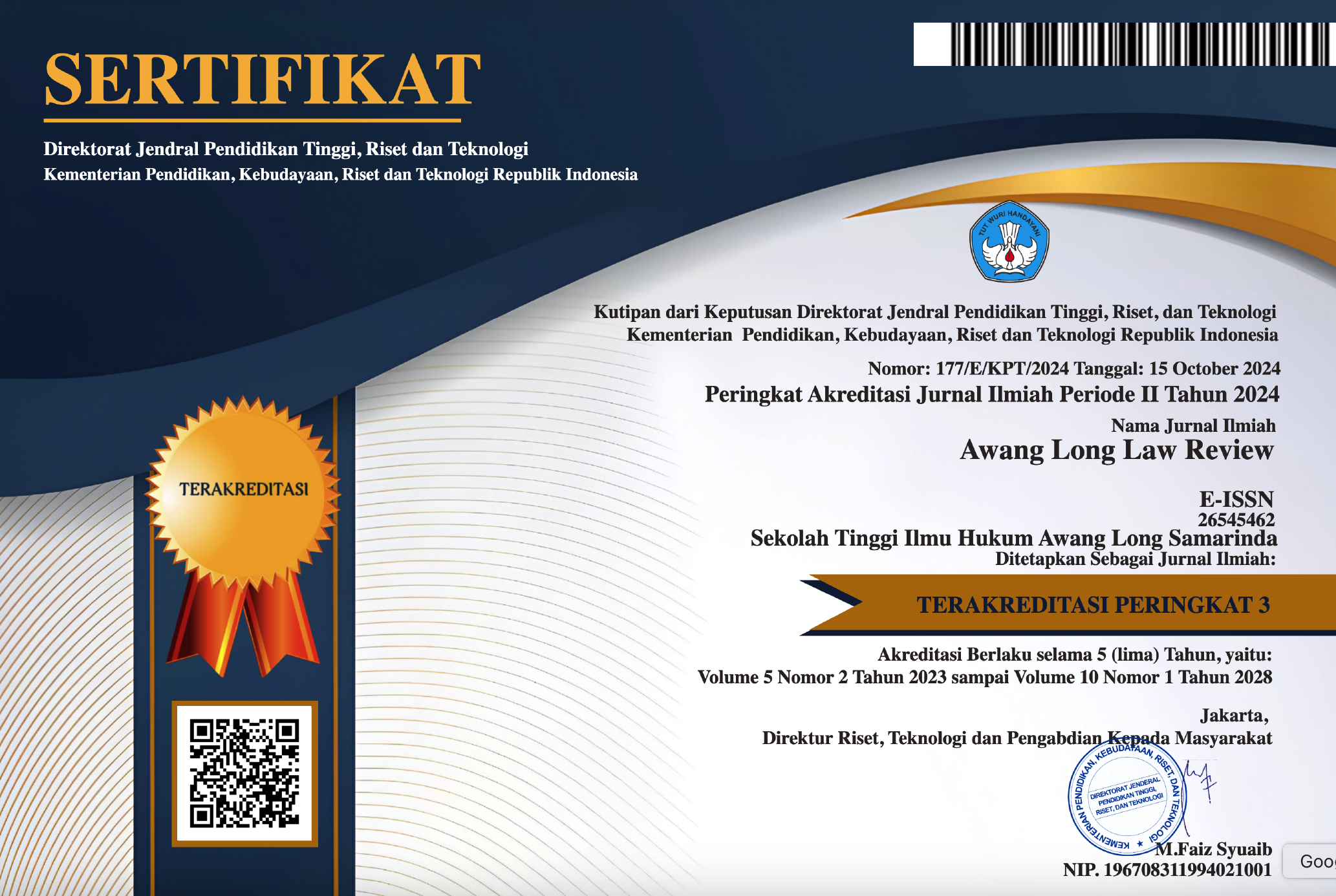THE ROLE OF THE YOUNGER GENERATION IN PARTICIPATORY SUPERVISION GENERAL ELECTION IN 2024
Abstract
The purpose of this research is first to describe the implementation of the 2024 General Election and, secondly, to describe the role of the younger generation in participatory supervision of the 2024 General Election. The normative legal research method uses legal materials as the main source, carried out using the philosophical, statute, conceptual, and historical approaches. The research results show that the 2024 general election will be the same as the 2019 election, namely that the legislative and presidential elections (Pilpres) will be held simultaneously. The legal basis for holding the 2024 General Election is the same as the 2019 General Election, namely Law Number 7 of 2017 concerning General Elections (Election Law). The 2024 general election stages begin on June 14, 2022; by Article 167 paragraph (6) of the Election Law, the general election stages begin 20 months before voting day, while voting day is February 14, 2024. Second, supervision of implementing general elections is a desire based on noble concerns (ultimate concerns), to achieve quality general elections. The existence of Bawaslu has experienced significant changes from time to time, which is a sign that its existence is very important for upholding general election justice. The limited number of supervisors is still one of the obstacles for Bawaslu in carrying out supervision at all stages of the general election. The younger generation's involvement in election supervision carried out by Bawaslu is participatory. Participatory supervision is generally described as a joint collective effort involving various components of society to supervise the implementation of general elections. The role of the young generation as participatory observers in general elections is to be able to provide initial information on suspected general election violations, participate in supervising/monitoring the implementation of general elections, prevent general election violations, and report suspected general election violations.
Downloads
References
Abdulkadir Muhammad, 2004, Law and Legal Research, PT Citra Aditya Bakti, Bandung
Bawaslu Regulation Number 15 of 2015 concerning the Strategic Plan of the Election Supervisory Body for 2015-2019
Bawaslu Regulation Number 3 of 2023 concerning Participatory Supervision
Bawaslu Regulation Number 5 of 2022 concerning Supervision of General Elections.
Bawaslu Regulation Number 7 of 2022 concerning Handling Findings and Reports of General Election Violations
Bawaslu RI, 2020, Simultaneous Election Supervision Design, Bawaslu RI Jakarta
Constitutional Court Decision Number 48/PUU-XVII/2019
Dayanto, 2019, Centrist Presidential Election Hegemony, Radar Sulbar, 11 March 2019
General Election Commission of the Republic of Indonesia, (2 July 2023), 2024 Domestic and Foreign Election DPT 204.8 million,
General Election Commission Regulation Number 3 of 2022 concerning
Gunawan Suswantoro, (2015), Participatory Election Supervision of Civil Society Movements for Indonesian Democracy, Jakarta: Erlangga Publishers.
Jajlurrahman Jurdi, 2018, Introduction to General Election Law, Jakarta: KencanaPrenada Media Group
Jimly Asshiddiqie, 2014, Introduction to Constitutional Law, Jakarta: Rajawali Pers,
Law Number 7 of 2017 concerning General Elections
Law Number 7 of 2023 concerning Stipulation of Government Regulations in Lieu of Law Number 1 of 2022 concerning Amendments to Law Number 7 of 2017 concerning General Elections into Law
Public Relations of the State Cabinet Secretariat,Government,(25 January 2022), DPR and Organizers Agree on Simultaneous Elections on 14 February 2024.
Republic of Indonesia General Election Commission, (3 November 2023), Announcement of 2024 Election DCT: DPR RI 9,917 candidates, DPD 668 Candidates.
RI Bawaslu, 2021,Middle Level Participatory Election Supervisor Cadre School Module, Bawaslu RI, Jakarta
Syamsudin Haris, 1995, Democracy in Indonesia-Ideas and Experience, Jakarta: LP3ES
The 1945 Constitution of the Republic of Indonesia Amendment
Tika Ayu and Febriyan (2 July 2023), Set DPT for 2024 Election, Indonesian KPU: 52 Percent of Young Voters.
Topo Santoso and Ida Budhiati, 2019, Elections in Indonesia – Institutions, Implementation and Supervision, Jakarta: Sinar Graphics
Wolhoff GJ, (1960), Introduction to Indonesian Constitutional Law, Djakarta, Timun Mas.
Copyright (c) 2024 Rudyanti Dorotea Tobing, Sri Astutik

This work is licensed under a Creative Commons Attribution-ShareAlike 4.0 International License.







